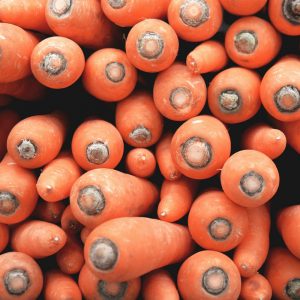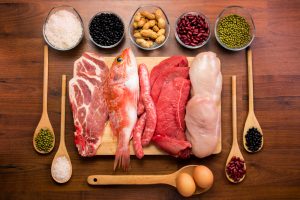
Food as your medicine
Remember that famous dude Hippocrates? Many millennial’s ago (before Christ in fact!) he was quoted saying ‘Let food by thy medicine, and medicine be thy food.’
In ancient times the only medicine available was our food. Nature provided all that we needed to nurture and heal our bodies – in fact, nature gave us hints as to which foods would be beneficial for which organ by creating that particular food to look like the relevant body part, for example;
- Heart: tomato
- Uterus: avocado
- Eyes: carrots

- Brain: walnuts
- Bones: celery
- Testes: clams
- Breasts: grapefruit
- Blood: red wine (Hallelujah I hear you say?! Remember though that more than 1 glass has a detrimental effect on our bodies)
- Stomach: ginger
- Pancreas: sweet potato
Isn’t that just further proof that nature knows best!?
Not only is food our medicine but what we eat also affects our hormonal balance. Serotonin, dopamine (our feel good hormones), insulin (manages blood sugar levels), cortisol (the stress hormone), oestrogen and testosterone (to name a few) are all affected by the food choices we make.
Phytoestrogens in food act like oestrogen in the body which in turn directly impacts on our monthly cycles (if you’re pre-menopausal) and can be hugely beneficial for reducing the symptoms of menopause (characterised by large decreases in oestrogen). Western medicine long ago noticed that women in the East suffered far less than Westerners during menopause and attributed this to the naturally high diet of phytoestrogens from soya derived foods.
Before you start going nuts over soy it’s important to know that there are two types – fermented and unfermented. The fermented variety is what Asian cultures have been consuming for centuries and includes a wide range of health benefits, hence its great reputation! Unfermented soy is not good for us, and unfortunately this is what is widely available in the west.
Unfermented soy is often genetically modified and contains toxins, or more politically correct term ‘anti-nutrients’; substances that are designed to ward animals (and people!) off from eating more.
There are 3 types of anti-nutrients found in unfermented soy and they are – phytates, enzymes inhibitors and goitrogens. All plants contain some anti-nutrients but soybeans contain the highest amount. So what exactly do these anti-nutrients do in our bodies? Here’s the list: digestives stress (bloating, flatulence); allergies; hormonal problems such as PMS, reproductive issues, endometriosis and loss of libido; weight gain; mood swings; insomnia; increased risk for heart disease and cancer and even ADHD.
So when consuming soy, stick to the fermented varieties – miso, tempeh, natto, Tamari soy sauce and good quality organic (non-GMO) tofu, ideally from a reputable health food store. Need a little inspiration? Check out my Nourishing Miso Broth recipe.
Whilst foods containing phytoestrogen can have a positive effect on our health, the same is true in reverse and certain foods should be avoided / limited. Here are some other useful tips for maintaining healthy hormones;
 Cut out refined sugar and refined carbohydrates: sugar wreaks havoc on our insulin levels which have a flow on effect to our entire body. Long term sugar intake unleashes a relentless barrage of insulin into our bloodstream which keeps the body in a state of alarm. This state of alarm erodes the hormonal balance in our body, degenerating brain tissue, leaching vital nutrients from the body, causes gut infections and imbalances and ultimately eroding the immune system. This in turn creates the perfect storm for autoimmune disease in the body. Whilst it may give us an initial ‘high’, long term it has an overall effect of lowering our serotonin levels (our feel good hormone!), not to mention all the other associated health risks including obesity and diabetes. Need any more reasons folks?..
Cut out refined sugar and refined carbohydrates: sugar wreaks havoc on our insulin levels which have a flow on effect to our entire body. Long term sugar intake unleashes a relentless barrage of insulin into our bloodstream which keeps the body in a state of alarm. This state of alarm erodes the hormonal balance in our body, degenerating brain tissue, leaching vital nutrients from the body, causes gut infections and imbalances and ultimately eroding the immune system. This in turn creates the perfect storm for autoimmune disease in the body. Whilst it may give us an initial ‘high’, long term it has an overall effect of lowering our serotonin levels (our feel good hormone!), not to mention all the other associated health risks including obesity and diabetes. Need any more reasons folks?..- Cut down / remove dairy: the sugars (lactose) and growth hormones (remember dairy milk contains hormones to make little cows into big cows) directly impact our hormones. Contrary to popular opinion we can consume enough calcium through our leafy greens as well as seeds and nuts so there is no danger in eliminating dairy from your diet.
- Limit your caffeine and alcohol intake: these wreak havoc on our stress hormone, cortisol. This is the hormone that is activated when we’re running away from a tiger in the jungle (hence called our ‘fight or flight’ response). The problem is nowadays we rely on our little pick me ups out of necessity to keep up (AKA ‘running on adrenaline’). Caffeine and alcohol have a direct effect of increasing cortisol which long term can result in increased feelings of anxiety, increased blood pressure and weight gain (your digestive system will shut down because the body thinks it is under direct threat from that tiger..)
Instead,
- Choose a predominantly plant based diet: not only are there no hormones in plant foods, they contain omega-6 EFA’s and phytochemicals such as vitamins, minerals, antioxidants, fibre and natural proteins that will harmonise your digestive system and bring your entire body, including your hormones, into balance.
 When you do eat meat, ensure it is good quality: grass fed, organic where possible and free from added hormones. Be mindful that we absorb far more than just their flesh! Happy cows = happy people!
When you do eat meat, ensure it is good quality: grass fed, organic where possible and free from added hormones. Be mindful that we absorb far more than just their flesh! Happy cows = happy people!- Increase your omega-3 intake by eating plenty of good quality (wild) fish or take good quality fish oil capsules: fish oil has a positive effect on your hormones which have been proven to improve liver health (let’s face it, who doesn’t need some liver support!)
- Get plenty of rest and don’t skip meals, especially breakfast: it’s important to eat every 4-5 hours in order to avoid an insulin roller-coaster (big highs, massive slumps). Sleep has the effect of ‘resetting’ our appetite hormones, leptin and ghrelin, so that our bodies work efficiently the following day. 7-8 hours’ sleep per night is ideal.






